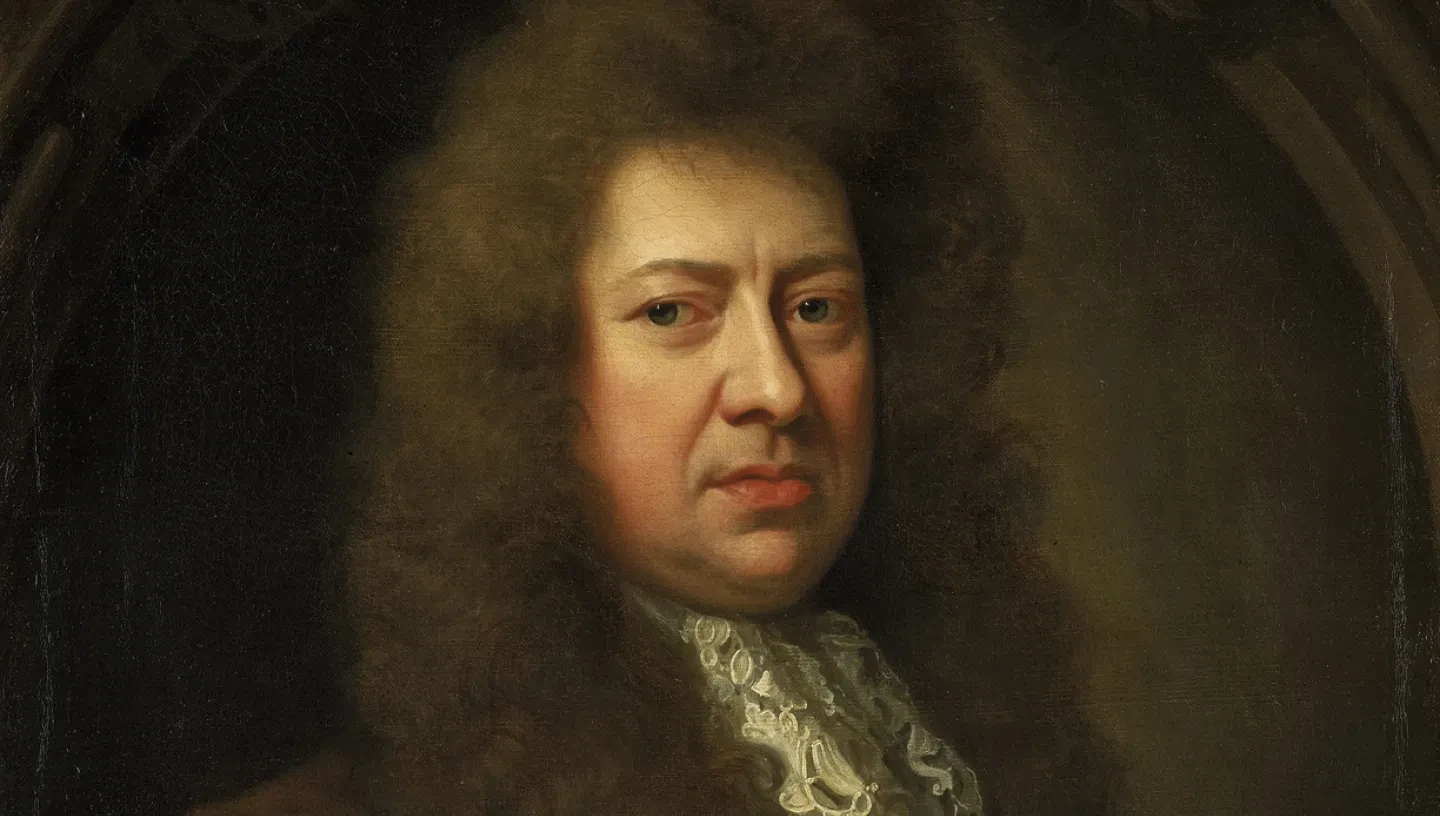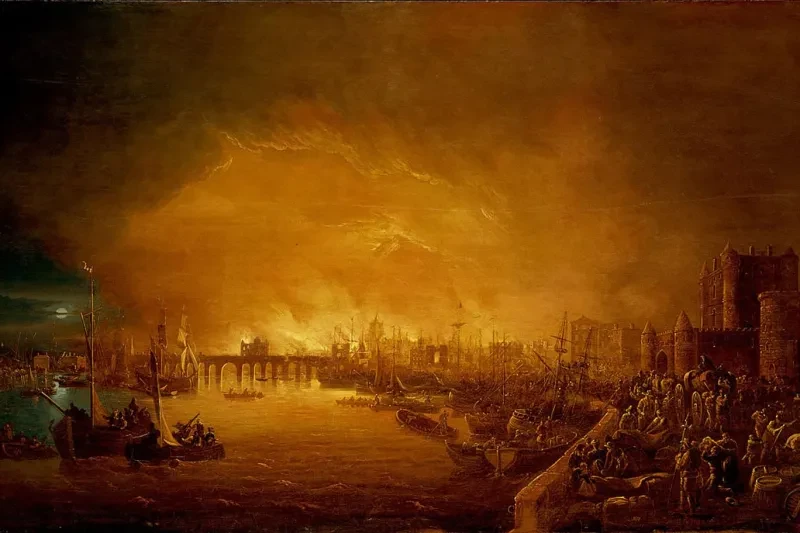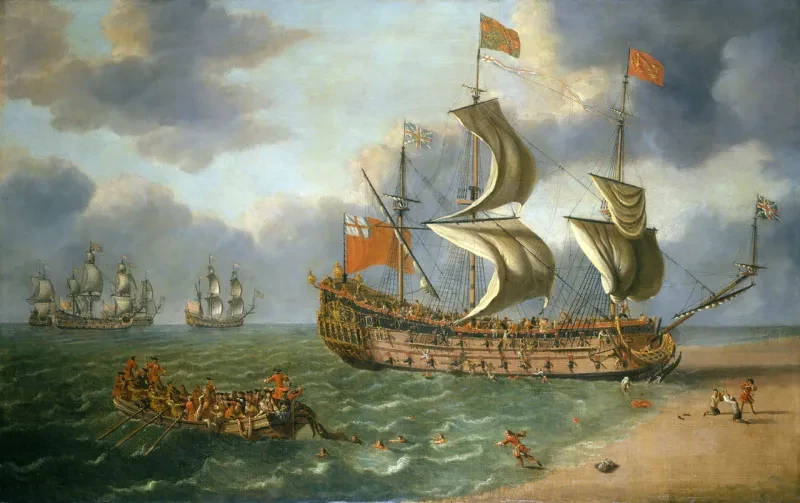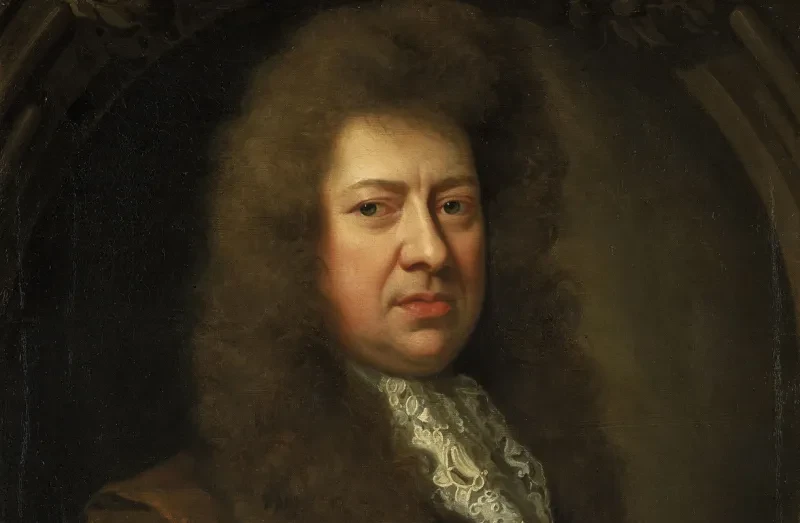
Naval reformer, citizen scientist, serious player on the national stage, MP and prisoner of the Tower of London – Samuel Pepys was all these, but it is his candid diary that has ensured he remains a household name centuries after his death.
As the son of a tailor, his origins were humble but by no means hopeless and his extended family contained people of influence. Perhaps with their help - and his own sharp mind - he made it to Cambridge University and then entered into service with his father’s cousin Sir Edward Montagu (later 1st Earl of Sandwich).
Around this time in 1655, he married the young Elisabeth de St Michel and undertook a mostly successful operation on excruciatingly painful bladder stones.
The King is back and the diary begins
Five years later in 1660, he began his diary. The nine years it covers saw Pepys rise to national prominence in public life but it is remembered particularly as a candid (and at times explicit) account of life during the remarkable years in which England returned to being a monarchy under Charles II before suffering plague, fire and war with the Dutch.
The young Pepys had witnessed the execution of King Charles I and had been a supporter of Parliament over monarchy until the death of Oliver Cromwell in 1658. Like many others, he swung round to supporting the restoration of the monarchy and in 1660 when his diary started he managed to be on the ship that brought Charles II back to England.
In swift succession, his cousin was made an Earl and Pepys was appointed Clerk of the Acts to the Navy Board. For someone with no naval experience, this was a very senior post and Pepys undertook a thorough programme of learning to equip himself. His obvious talent and energy soon outshone the other members of the board and further commissions follow.
War, work and lust
The 1660s saw a stream of battles with the Dutch and, on the whole, the Dutch come out on top. Pepys managed to escape censure despite his senior position in the Navy following various inquiries. A job like his might be expected to occupy all his time but in fact Pepys was a man of almost limitless energy and managed to indulge his passion for theatre, music and extra marital affairs to a remarkable extent.
All this he detailed in his diaries giving us the most honest and engaging account of everyday (if somewhat privileged) life in this period. He was not content to write down his own indiscretions with actresses and other men’s wives, he went into great detail about the King’s personal affairs and the immoral goings on at the court.
Pestilence and fire
While the King and most well-to-do folk skipped London during the Great Plague of London in 1665, Pepys stayed on and gave us a detailed account of the suffering and superstitions of the time. Likewise, his description of the Great Fire of London the following year is without doubt our most important record of what happened and Pepys played an active part in attempts by Charles II to stop the fire spreading.
By now Pepys was indelibly associated with Charles II and his younger brother and heir James (who was in charge of the Navy). The patronage and power of this association ensured Pepys survival and success but it would eventually be his undoing.
Worried that all this reading and writing was going to end in blindness, Pepys abandoned his diary in 1669. In November of that year his beloved if long-suffering wife Elisabeth succumbed to typhoid and died.
Member of Parliament and prisoner in the Tower
In 1673 he was elected as an MP first in Norfolk and then for Harwich in 1679. He acquired more than a few political enemies and was even locked up in the Tower of London in that same year accused of leaking intelligence to the French and of being a Papist.
For four years from 1684 he was elected President of the Royal Society having been an active Fellow since 1665. It’s during this time that Newton published his scientific blockbuster Principia Mathematica.
End of an era
He swung back and forth in official favour but when Charles II died and his Catholic brother James II fled the country rather than face William of Orange, Pepys’ position became untenable (and his sympathies suspect) so he retired from public life.
On his death in 1703 he made provision that his magnificent library and his diaries should end up in Cambridge. Many years after his death, the various codes and shorthand in his diaries were cracked and his diary became a source of historical record and scandal.


